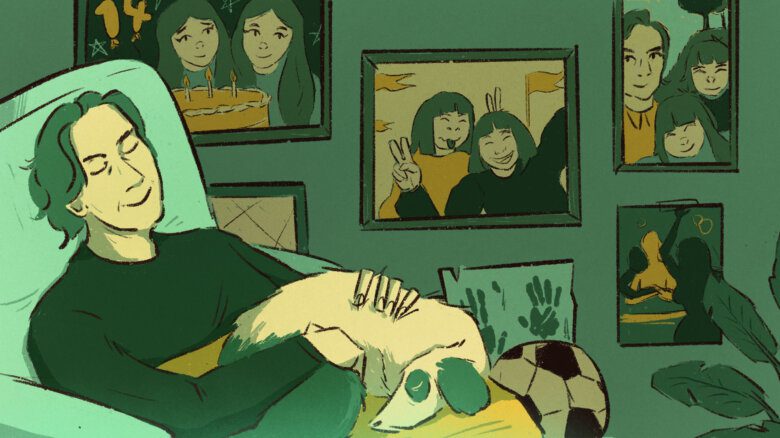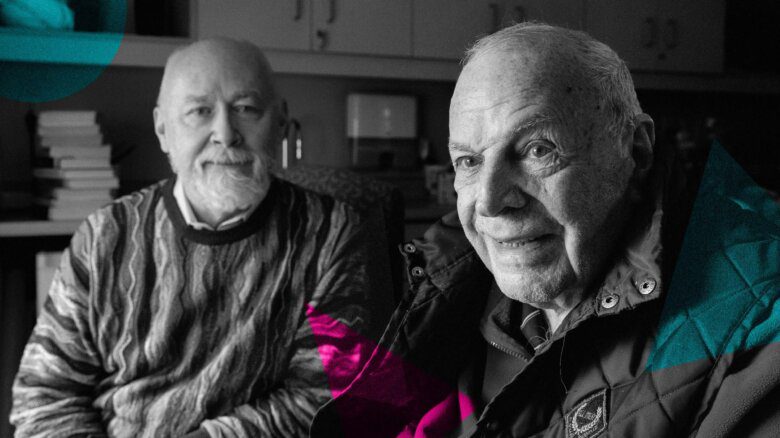“Ask Kai: Advice for the Apocalypse” is a column by Kai Cheng Thom to help you survive and thrive in a challenging world. Have a question? Email askkai@xtramagazine.com.
Dear Kai,
I am pretty sure that a longtime friend of mine is falling down the anti-trans rabbit hole. They started saying transphobic things to me a few months after informing me that they were starting to detransition. I have nothing against their choice to detransition, as I know sometimes our paths just need to change. However, I know they’ve also been having an emotionally rough time. They’re isolated because they haven’t been very kind to others lately, so they’ve been losing friends over time. I know that all of this adds up to the kind of personality profile anti-trans propaganda groups target.
As a trans person myself, I’ve decided that I’m going to draw the boundary that I won’t be speaking to them anymore. But it also feels weird to just not do anything about it. I feel like I’m stuck between two choices: the first is that I can let a mutual friend know what’s going on, and risk pushing this person further into isolation and right-wing thinking—or facing backlash from them. I could also say nothing, and know that I am protecting myself. But I feel like I might go crazy from there not being any accountability for this person’s transphobia.
So I guess what I want to ask is, as someone who’s been in trans community for much longer than I have, have you ever experienced something similar? What did people do, what happened? And is there some option I’m not thinking of?
Worried About Friend’s Emergent Radicalization
Dear WAFER,
I’m so sorry to hear that you are witnessing your friend go through this troubling world-view shift. It is painful indeed to watch people we love, or used to love, suffer, lash out and hurt us. It’s beyond painful to see someone from our own community turn against everything we are. This is an incredibly complex situation, and unfortunately, a naturally very polarizing one. That is to say, the people you speak to and the people your (former) friend is speaking to are probably going to have strong opinions based on their own experiences. With that in mind, I am going to try to offer you another way.
As you say, WAFER, sometimes people just need to detransition, and there is absolutely nothing wrong with that—in fact, I’ve had many folks in my life stop, reverse or change the course of their transitions, some without ever using the word “detransition.” Instead, they say they “re-transitioned,” “re-identified” or use other words that feel right for them. I’ve also known folks to use the term “detransition” to describe a wide variety of experiences. For example, some say “detransition” to mean that they have returned to the gender identity they were assigned at birth, while others use it to mean that they have changed to an altogether new gender identity. Others may say they have detransitioned to meant that they haven’t changed their identity at all, but have stopped taking hormones. Unfortunately, mainstream media tends to focus on only one group of people who identify with the term; that is, those who renounce the idea of trans identity at all. As a result, the idea of detransitioning has taken on an extremely charged and negative connotation over the past decade or so. When discussed by the contemporary media, by trans-exclusionary radical feminists, or by transphobic conservatives, detransition most often comes with an implication of failure, tragedy, rage and blame directed at the trans community and our medical providers. Among trans people ourselves, the notion of detransition can be highly stigmatized, and those who identify as detransitioners, or detrans, are sometimes met with suspicion, scorn and mockery—probably because of the relatively small number of high-profile detrans activists who have spoken out with great hostility against trans people. Yet it is important to note that many detrans-identified folks continue to support trans rights vocally, and are largely embraced by trans communities.
The result of all these dynamics, WAFER, is that we all get trapped in a vicious binary: Trans people versus detrans people. Trans people’s human rights are pitted against the suffering of detransitioners who feel let down or betrayed by the trans community and trans healthcare. In these more extreme cases, each side deems the other toxic and not worth talking to. The anti-trans or “gender-critical” side calls our community a cult who are out to brainwash people. We call their side transphobic bigots who are out to destroy us. What gets lost in the struggle is the pain and humanity of everyone caught in between.
Each side finds its villain in the other. Each side says that the other started the fight. In this case, though, I’m not sure that it’s useful to debate who started the culture war between members of the trans community and gender-critical detransitioners. I think it’s more important to ask ourselves: how do we end it?
“People who detransition sometimes transition again to new and different gender identities when held in a web of loving support.”
Like I said, WAFER, I’ve known quite a few people who have detransitioned over the years, though rarely with the amount of animosity that your ex-friend seems to be going through. Nonetheless, I’ve borne witness to a great deal of struggle and confusion over gender journeys that haven’t turned out according to plan. I believe that people who detransition should be welcome and cared for in trans community. I know that people who detransition sometimes transition again to new and different gender identities when held in a web of loving support. In my heart of hearts, I believe that trans community should be a home to anyone on the spectrum of gender diversity or nonconformity. To those who detransition but still want to stay in community with us, I think we should say, “This is your home. You will always be welcome here.”
When it comes to those detransitioned individuals who place the blame for their suffering on trans people and act in transphobic ways, I believe that each side has its own role to play in ending the culture war. The anger expressed by people like your ex-friend comes from a place of deep pain, and while their anger may be misguided, it can only be transformed by compassion. If trans people and our allies do not offer compassion to your ex-friend, then the only place they will find it is among the other side, and they will be driven further and further into the role of our enemy.
Offering compassion does not mean that we cannot have boundaries, WAFER. I don’t know what transphobic things they said to you, but you do not have to put up with abuse. You don’t have to stay friends with this person, and you don’t have to speak to them at all if you fear that they will harm you. However, if there is any possible way that someone can have a safe (enough) conversation with them about what they are going through and what they might need to feel understood and cared for in trans community, I would encourage that. Perhaps some of your remaining mutual friends can come together to reach out to this person. Or perhaps you can write them a letter. Of course, you have to balance offering them compassion and keeping yourself safe.
Where does accountability come into all this, you may ask? To be truly accountable, we have to be able to understand the impact of our choices, as well as the emotions that led us to those choices. The unfortunate reality, WAFER, is that I imagine your friend does not yet have this understanding. Usually we need to have our own basic psychological needs attended to in order to develop greater self-awareness, and in so doing, become accountable. Once again, it comes down to compassion—not that you have to offer this person unending compassion if they have harmed you, but rather they will need to receive compassion from someone in order to understand the impact they’ve had.
What’s your role in all this, WAFER? I think it really depends on how harmed you’ve been and how much emotional risk you’re willing to take. If you feel the need to keep your distance for safety reasons, I would suggest you honour that and hopefully someone else can take on the role of reaching out to your ex-friend. What we also need to accept in this situation is that there are no guaranteed outcomes.
In situations like this, I like to think of the metaphor of building a bridge across a river: To reach your ex-friend, the people in your trans community will need to extend themselves halfway across the river, to build a bridge of compassion and curiosity. Your ex-friend will need to choose to meet them halfway based on their own compassion and curiosity. Everyone needs to try, and everyone needs to take a risk. Sometimes, that risk just feels too big, and that means we have to part ways. What do you think about your situation, WAFER? How big is the risk, and are you and your community willing to take it?
I’ve been in trans community for over a decade now, and in that time, I’ve seen lots of conflicts and shattered relationships. I’ve gotten a little jaded about that. Some relationships can’t be saved, and sometimes we do lose people as they go to the other side. Still, I dream about a world where there aren’t opposing “sides.” I like to imagine that if we all put a little courage and a lot of love into the mix, we can build a bridge big enough to bring everybody home. I don’t know if that’s true in your friend’s case, WAFER. I hope it is. I hope it’s true for all of us.
Kai Cheng Thom is no longer a registered or practicing mental health professional. The opinions expressed in this column are not intended or implied to be a substitute for professional medical advice, diagnosis or treatment. All content in this column, including, but not limited to, all text, graphics, videos and images, is for general information purposes only. This column, its author, Xtra (including its parent and affiliated companies, as well as their directors, officers, employees, successors and assigns) and any guest authors are not responsible for the accuracy of the information contained in this column or the outcome of following any information provided directly or indirectly from it.


 Why you can trust Xtra
Why you can trust Xtra


